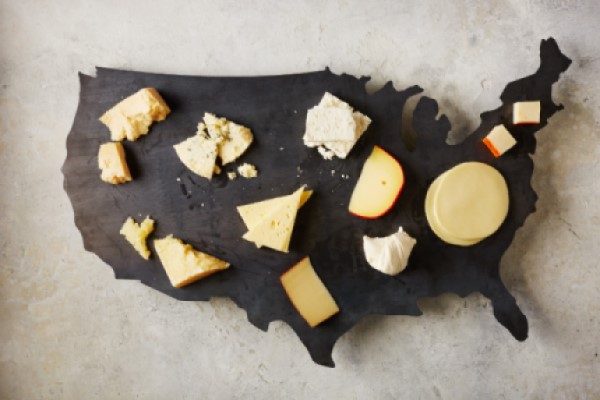Bipartisan letter calls for U.S. government to enhance actions against geographical indications.
August 10, 2020

A total of 61 Senators, including Sens. Tammy Baldwin (D., Wisc.), John Thune (R., S.D.), Tom Tillis (R., N.C.) and Debbie Stabenow (D., Mich.), called on U.S. Trade Representative Robert Lighthizer and U.S. Department of Agriculture Secretary Sonny Perdue to protect American food producers from unfair trade initiatives that would require them to change the names of meat, cheese and wine they have made for decades.
The recent United States-Canada-Mexico Agreement (USMCA) included important safeguards to protect products using common food names such as bologna, parmesan and feta. However, countries outside of North America have been exploiting protections meant for valid geographical indications in order to limit competition and block imports, which has a harmful effect on U.S. food producers and our agriculture economy.
The letter from 31 Democrats and 30 Republicans request that the U.S. government enhance their common food name protections as a core policy objective in all trade-related discussions. This is a direct challenge to the European Union (EU)’s misuse of protections meant for valid geographical indications (GIs) to instead block American exports of common or generic food and wine terms, such as parmesan, feta, bologna or chateau. These unjustified trade barriers harm American farmers, limit choices for consumers and have put manufacturing jobs across an essential sector at risk.
The Senators said in their letter, “Our competitors continue to employ trade negotiations around the world to prohibit American-made products from using common food names and wine grape varietal designations or traditional terms, such as bologna, parmesan, chateau, and feta, which have been in use for decades. Due to this continued practice by our competitors, we urge the administration to improve upon the template established in the USMCA negotiations and continue to prioritize market access and the ability of U.S. producers to use common food names in ongoing and future trade negotiations.”
Signers of the letter included several senators holding leadership positions on committees with jurisdiction over this issue, notably the chairman and ranking member of the senate committee on finance and the chairman and ranking member of the senate committee on agriculture. in addition, the letter also includes the chairman of the senate committee on the judiciary subcommittee on intellectual property.
Farm and agricultural industries commending the letter include:
Consortium for Common Food Names (CCFN)
U.S. Dairy Export Council (USDEC)
American Farm Bureau Federation (AFBF)
North America Meat Institute (NAMI)
National Association of State Departments of Agriculture (NASDA)
National Milk Producers Federation (NMPF)
Wine Institute (WI)
“The United States has been fighting the EU’s unfair GI trade policies with one hand tied behind its back while the EU has been battling with its full force. This unbalanced approach has helped the EU in its efforts to block U.S. exports of products using common food and wine terms, causing serious harm to America’s farmers, ranchers, food manufacturers and exporters. We applaud Senators Thune, Stabenow Tillis and Baldwin for leading this effort to meet the EU’s efforts to block American exports with an equal force to promote fair trade and ensure the free flow of products using all tools available to the U.S. government,” said Jaime Castaneda, executive director of CCFN.
“We encourage USTR and USDA to immediately establish the explicit protection of common food names as a primary policy objective in all trade discussions. The overwhelming bipartisan support demonstrated by the U.S. Senate for this goal underscores the importance of breaking down these GI-related barriers and achieving greater export safeguards for U.S. cheeses and other common name products. By putting protections for common food and wine terms first, we will ensure that American-made products do not come in last,” said Tom Vilsack, president and CEO of USDEC.
“Protection for the use of common food names will greatly assist in the export of high-quality American agricultural products around the world. We applaud the U.S. government for their efforts to remove trade barriers that block our exports,” said Zippy Duvall, president of AFBF.
“The European Union has for too long unjustifiably and erroneously attempted to restrict trade in common food name products, including meat exports from the U.S. The policy advocated in the bipartisan letter sent today to USDA and USTR will advance critical safeguards for common food name products in international trade and will enable America’s meat and poultry packers and processors, agricultural producers and food manufacturers to compete on a level playing field with their counterparts in the EU,” said Julie Anna Potts, CEO of the North American Meat Institute.
“As tireless advocates for U.S. food and agriculture exports, NASDA members understand the importance of protecting the use of common food names. Securing clear assurances from trading partners that preserve the value of U.S. market access must be an integral part of U.S. trade policy. NASDA looks forward to supporting our federal partners as they continue to seek trade deals that increase sales of U.S. products around the globe,” said Dr. Barb Glenn, CEO of NASDA.
“Europe has demonstrated it will not yield in its efforts to erect trade barriers and limit fair competition from high-quality American-made food and wine products, including U.S. cheeses. A comprehensive long-term U.S. trade strategy is required to protect American farmers and food producers,” said Jim Mulhern, president and CEO of NMPF.
“We have watched time and again as the EU has gone well beyond protecting legitimate GIs to erect trade barriers that benefit their own producers at our expense. The recent EU-China agreement on GIs is a perfect example of how the EU abuses GIs for their own gain. We are grateful to these Senators for saying enough is enough, the U.S. must do more to ensure a level playing field for common food names, grape varietal names and traditional terms,” said Bobby Koch, president and CEO of Wine Institute.
You May Also Like
.png?width=300&auto=webp&quality=80&disable=upscale)
.png?width=300&auto=webp&quality=80&disable=upscale)

